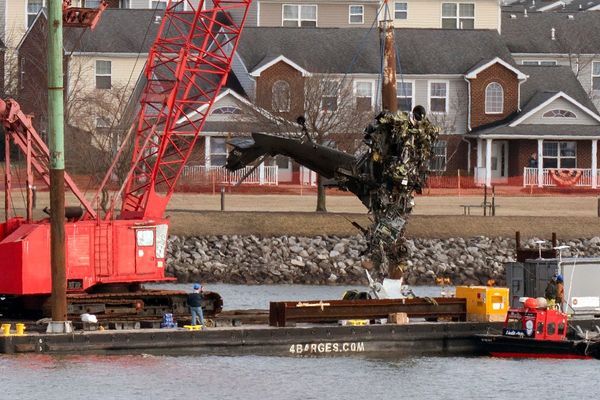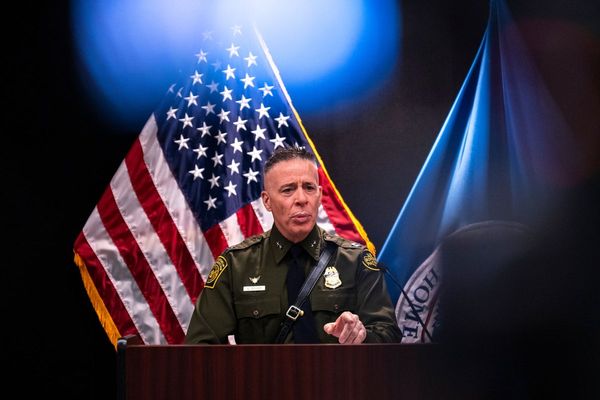Sterling HolyWhiteMountain read James Welch's "Winter in the Blood" for the first time more than 10 years ago, but he remembers the impact it had on him so vividly that it's as though he finished the novel yesterday.
"It was incredible to me because I had never read fiction that was so imminently recognizable to me," said the Native writer and Jones Lecturer at Stanford University.
The 1974 novel follows a young Native American man living on a Montana reservation searching for a connection to his ancestors' lands while struggling with a haunting personal tragedy. The story moved him. But HolyWhiteMountain was surprised that there weren't larger conversations in the U.S. about Welch, considered a founding author of the Native American Renaissance, and his work: Not when he was a student at the University of Montana, Welch's alma mater. Not when he was getting his master of fine arts degree at the University of Iowa.
That is, until he began meeting other Native writers like him — among them, David Treuer, the writer, teacher and Pantheon Books editor who also shared his love for Welch's work.
"That made me realize that there's something very interesting happening here, which is that his work is valued by [Indigenous writers] but is very much behind closed doors," said HolyWhiteMountain, whose work has appeared in the New Yorker, the Atlantic, the Paris Review and more. "The conversation that takes place among and between Native writers is one that has exclusively existed in private because there's never been a place for us to talk publicly about things the way we want with each other."
He decided to change that — to create a public space for Native writers to talk to other Native writers about writing, their work and Welch, who died in 2003.
The inaugural James Welch Native Lit Festival, believed to be the country's first literary celebration by and for Indigenous writers, kicked off on July 28 in Missoula, Montana. The three-day event, which will happen biannually, featured readings and panels with some of the nation's most esteemed Native authors, including Louise Erdrich, Tommy Orange, Brandon Hobson and Truer. The next festival in 2024 will focus on poets and eventually expand to include creatives from the worlds of TV, film, theater and visual arts.
"It's amazing to be in a moment where there are so many Native writers and artists now that you can't have everybody in one festival," said HolyWhiteMountain, "whereas 30 years ago you pretty much could have."
Indeed, the festival is carving space for a community that has historically been stereotyped and underrepresented in the publishing industry and literary world. In an ongoing survey by the Cooperative Children's Book Center on the representation of people of color in children's books, 1.5% of 3,183 books it received in 2021 by U.S. publishers were written by Indigenous authors; 2% were about them. Between 2018 and 2020, books by Native writers were lower, at less than 1%.
"There's a really long history, in all levels of American culture, where people think it's effective to just get one person [from an underrepresented community] up in front of an audience, like one Native person, and consider it enough," said HolyWhiteMountain. "But it's not."
He recalled the predictable conversations that often emerge at panels where a white audience predominates: "The basic questions always revolve around identity. They never revolve around what we actually do in our art or how we do it or what our process is like, which is what everybody asks white artists," he added, laughing. "All the questions boil down to what it's like to be an Indian. How many times can you answer that f— question before you're just like, 'There has to be another way to do this?'"
The panels in the inaugural festival, attended by an estimated 1,200 people inside the Missoula Public Library and the Wilma, a local historic theater, aimed to counteract those predictable conversations.
One panel featured Native writers David Heska Wanbli Weiden and Rebecca Roanhorse discussing thriller and speculative fiction. Another, titled "Two Spirit/LGBTQ panel" with Adrian L. Jawort, Taté Walker and Raven E. Heavy Runner, focused on, among other subjects, the experiences of being Native and LGTBQ, the colonization of Indigenous stories and the queerness of traditional Native tales.
Tommy Orange sees the festival as part of a larger movement toward Indigenous visibility and representation that includes hit TV shows like "Reservation Dogs," "Rutherford Falls" and "Dark Winds."
Native representation across media and public spaces, including literature and festivals, does more than debunk harmful tropes and stereotypes, added Orange, author of "There There," a 2019 Pulitzer Prize finalist; it also spotlights "the diversity and nuance of our communities and voices and who we are as a people.
"That's part of why this moment is so important … what's exciting about the visibility and representation is it combats the way we've been dehumanized."
The scope of diversity and experiences among the panelists really struck high school student K Kipp.
"I thought it was really cool to see that the Indigenous people who were able to succeed in this field of work were just Indigenous people," said the 16-year-old, one of five Upward Bound high school students who attended the festival. "They weren't anything crazy and special, or the epitome of Indigenous and they also weren't really all white-passing … so it was cool to see like 'OK, I don't need to play my cards any kind of way when it comes to my culture to be able to succeed.'"
Wica-ta-wi Hoksina Brown agreed.
The 15-year-old referenced insights about identity that authors Sasha LaPointe and Kelli Jo Ford shared in separate panels.
During the nonfiction/memoir discussion, LaPointe remembered being called a "sellout" by some Indigenous people when she sold her memoir "Red Paint." "People started criticizing her for her writing simply because she got a good opportunity," recalled Brown.
And Ford, in the "We Talk, You Listen" panel, talked about identity being a socially constructed box, and that those who don't fit their allotted boxes are often shunned.
"So it was very inspiring to see so many people from seemingly similar backgrounds come up, and yet they're also very different and they found success in their own ways," said Brown.
Katey Funderburgh, the students' Upward Bound teacher, was moved to see the generosity of so many of the weekend's special guests.
"The authors took the time to talk with the students, to really listen to them, to advise them and encourage them into their best selves," she said. "Even in just three days, my students bloomed a little more."







